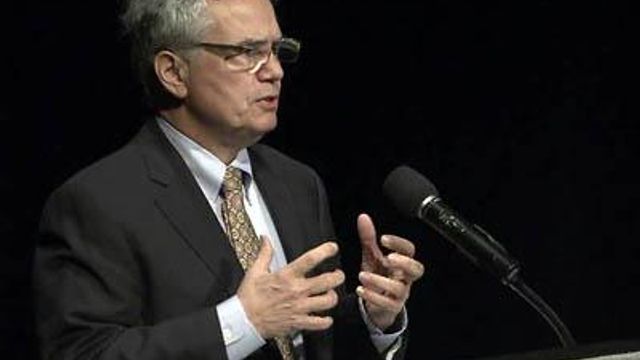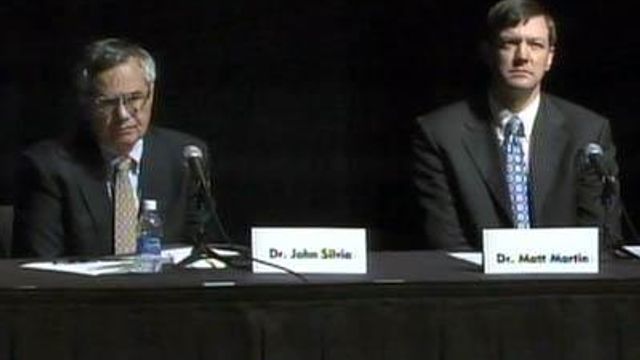Experts: Workers need training to keep Triangle economy growing
Two economists said Wednesday that the Triangle's economy is showing steady growth following the recession but that people will need more training to maintain that momentum.
Posted — UpdatedMatthew Martin, senior vice president of the Federal Reserve Bank of Richmond, Va., and John Silvia, chief economist for Wells Fargo, told members of the Greater Raleigh Chamber of Commerce that consumer confidence is up locally, average incomes have risen and the home construction industry is rebounding.
The Triangle is paving the road to recovery, they said, because it has growing industries like health care, information technology, education and government.
Yet, they said, the number of jobs being created won't replace many of the positions lost during the recession.
"The vast majority of jobs that are being created are going to be for the younger, more professional, computer-literate people," Silvia said.
In order to compete, he said, unemployed people will need to be trained for those skilled positions.
"These (unskilled factory) jobs are not coming back, and all you good ol' boys who think that you don't need to go to college or community college and learn something, (that) you're going to work hard ... it's ridiculous," Silvia said.
Enrollment at Wake Technical Community College has jumped 38 percent since 2007 as people seek extra training, President Stephen Scott said. More than 18,000 students have enrolled for the spring semester, and enrollment remains open for another week.
"Work force development is the primary role of Wake Tech," Scott said. "We are training people for the jobs that actually exist today and the ones that are going to exist tomorrow."
State Treasurer Janet Cowell told chamber members that she is calling on lawmakers to change North Carolina's tax structure to stabilize the state's finances and make it more competitive.
Cowell proposed expanding personal and corporate income taxes and the state sales tax by reducing the number of exemptions and credits. At the same time, she said, the tax rate on each could be rolled back by 1 percentage point.
"No citizen or business should have to face the level of unpredictability, complexity and lack of equity that exists in our current tax structure,” she said.
Cowell plans to tour the state next week, talking to community leaders about her plan. She has stops scheduled:
- Monday at the Charlotte Regional Partnership, 550 S. Caldwell St., 12:30 p.m.
- Wednesday at Grandover Conference Center in Greensboro at 10:45 a.m.
- Thursday at the Eastern Regional Partnership meeting at the Greenville Hilton, 207 SW Greenville Blvd. at 9:30 a.m.
- and Thursday at the Wilson Chamber of Commerce, 200 W. Nash St. at noon
The economists said that North Carolina consumers will likely remain cautious with money and spending, which means only a slight or moderate increase in the state's sales tax revenue for the year.
• Credits
Copyright 2024 by Capitol Broadcasting Company. All rights reserved. This material may not be published, broadcast, rewritten or redistributed.






